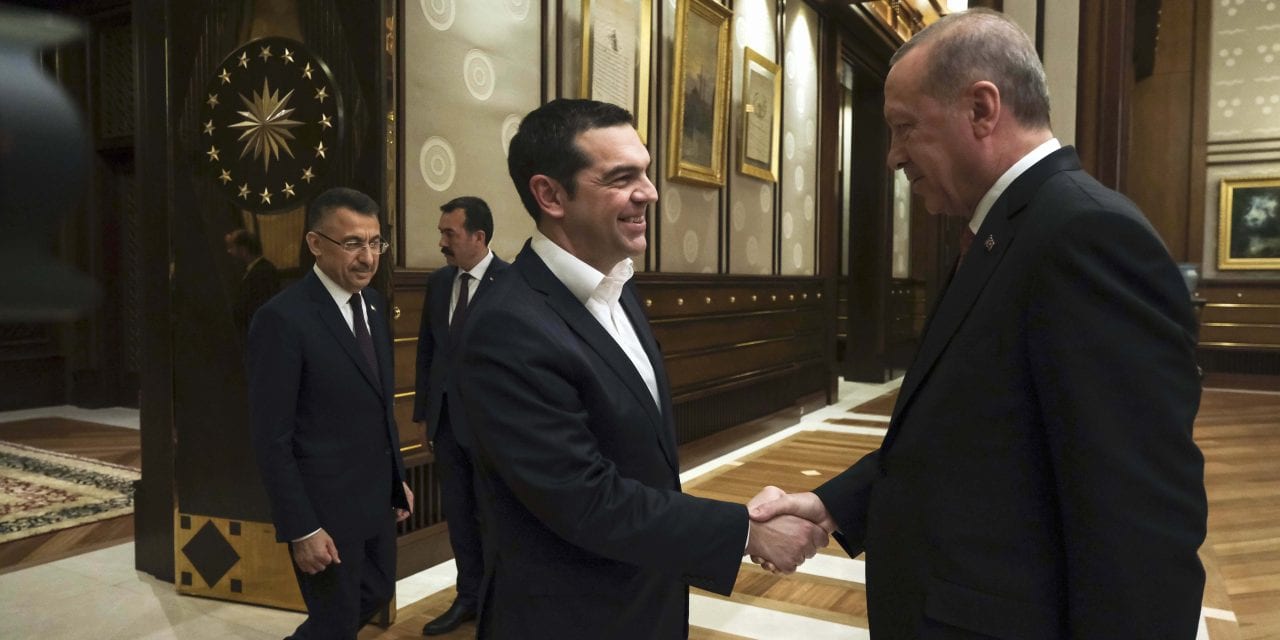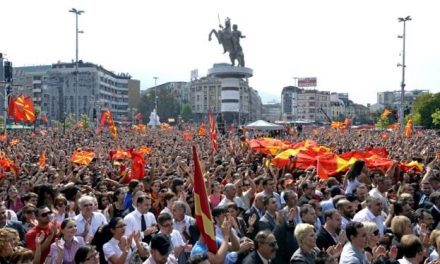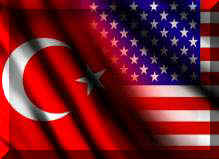by Edmond Y. Azadian, Mirror Spectator
Turkey’s challenge to regional and global powers has experienced a recent respite. President Recep Tayyip Erdogan’s Islamist government had pushed its luck too far, particularly playing the patron saint of the Sunni Islamic world.
With continuous changes in the landscape of the Middle East, Turkey’s bullying posture finally hit a snag. Relations deteriorated with Egypt, Saudi Arabia and Israel, therefore Erdogan’s government turned to other fronts to score some foreign policy gains.
When Turkey shot down a Russian military aircraft on its border with Syria in 2015, Moscow retaliated boldly and almost crippled Turkey’s tourism industry. Today, however, Russian-Turkish relations are on an upswing. Within the last 12 months, trade between the two countries has risen to $25 billion a year, a 25-percent increase — and it is well on its way to reach the targeted goal of $100 billion a year.
And though Turkey is a NATO member, it has agreed to buy Russian S-400 defense missiles, despite US threats.
And just a few days ago, Moscow declared a visa liberalization policy for citizens of Turkey.
In the Syrian war theater, Turkey has both competing and complementary political interests with Russia and Iran. Ankara’s agreement with the US on Idlib has not been consummated yet and Ankara is looking for settlements with Moscow and Iran during the forthcoming Sochi summit. Russia has been touting and resurrecting the Adana agreement, signed in 1999 between Syria and Turkey, committing both parties to curb any Kurdish activity on either side of the border. This would serve well as an alternative venue to Ankara’s bid for a security zone on the Syrian border, stretching from Jarablus to the Iraqi border. To entice Turkey to settle for that agreement, Russia and Iran have also pledged to join that pact.
Ankara had been gauging the temperature on the Armenian-Azeri border, where alarm bells went off recently when Turkey decided to set up a military base in the Azerbaijani exclave of Nakhichevan. Pundits in Armenia were surprised by the sudden lull in cross-border incidents with Azerbaijan. Questions had been raised whether that was the result of the brief chat between Prime Minister Nikol Pashinyan and President Ilham Aliyev in an elevator in Astana where both were attending a meeting. Speculations also refer to the change in Turkey’s relations with its neighbors.
The above developments also coincide with Erdogan’s decision to return three more confiscated properties to the Armenian community.
As a conciliatory gesture, Armenia has also injected itself in the Syrian imbroglio with its contingent of non-military personnel leaving for a humanitarian mission under Russian command. US National Security Advisor John Bolton earlier had questioned whether the mission had a truly humanitarian or military nature and he even had advised Pashinyan against the group’s deployment in Syria.
Armenia’s participation will not affect the military balance in Syria, but Pashinyan’s defiance of Bolton’s warnings has earned brownie points for Armenia in the Kremlin.
Yerevan is at a standoff with Belarus over the appointment of the secretary general of the Collective Security Treaty Organization (CSTO) military alliance and Moscow has been tilting towards Armenia, a positive sign in the improving relations between Armenia and Russia.
Turkey has its occupation forces in Cyprus, stalling all progress over the ongoing talks. But despite that stalemate, the Greek socialist Prime Minister Alexis Tsipras decided to make an official visit to Turkey in February. Only a few weeks ago, a Turkish general was threatening to destroy Greece in four hours in their dispute on some Aegean islands which had been ceded to Greece by the Lausanne Treaty of 1923. That treaty defines the border between Greece and Turkey and in a way signifies the birth certificate of modern Turkey.
In Greece, the previous conservative government as well as the current socialist government, have conducted erratic and opportunistic policies vis-à-vis Turkey, sometimes threatening it with actions beyond their power to deliver and then switching gears to a conciliatory mood.
Prime Minister Alexis Tsipras’ agenda on his recent visit to Turkey lacks clarity. Even his public statements have failed to shed light on that mission. Speaking with the official Anadolu news agency in Ankara, he said, “Conditions must be created in Greek-Turkish relations for historic steps to take place.”
He also said that his relationship with Mr. Erdogan has been “challenged in very difficult moments, but it allowed us to consolidate channels of communication on many levels, to overcome obstacles and to be able, today, to speak of a positive agenda.”
Mr. Tsipras visited the Greek Orthodox Seminary on Heybeli Island, which had been closed by the Turkish government in 1971, along with the Armenian Seminary of Sourp Khatch. The Greek Orthodox community was heartened by the symbolic visit hoping that the government may allow its opening. But when Mr. Erdogan visited Greece, he had conditioned the opening of the Greek seminary, with the building of a mosque in Athens. He had also stunned his Greek hosts when he proposed to revise the Lausanne Treaty, probably to secure the return of some Aegean islands on the Turkish littoral to Ankara.
Despite President Erdogan’s populist style, Turkey is conducting a highly refined policy in the region. Armenia is counting on Erdogan being a cartoonish figure, but we have to realize that he is standing on the experience of six hundred years of ruling a colonial empire. We need to recognize and understand the true power of our foe and deal accordingly.



















